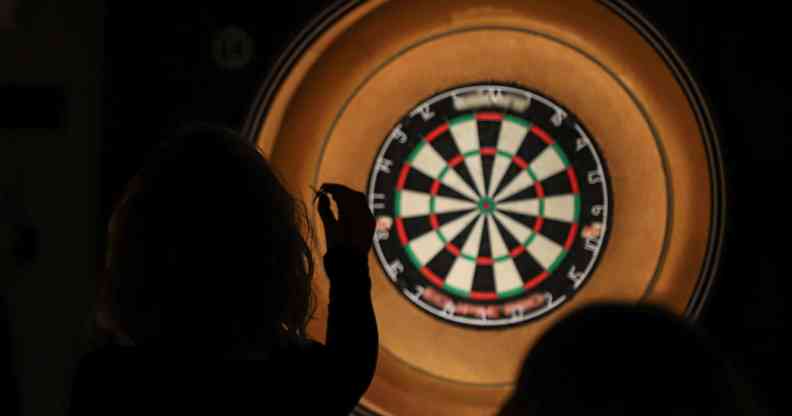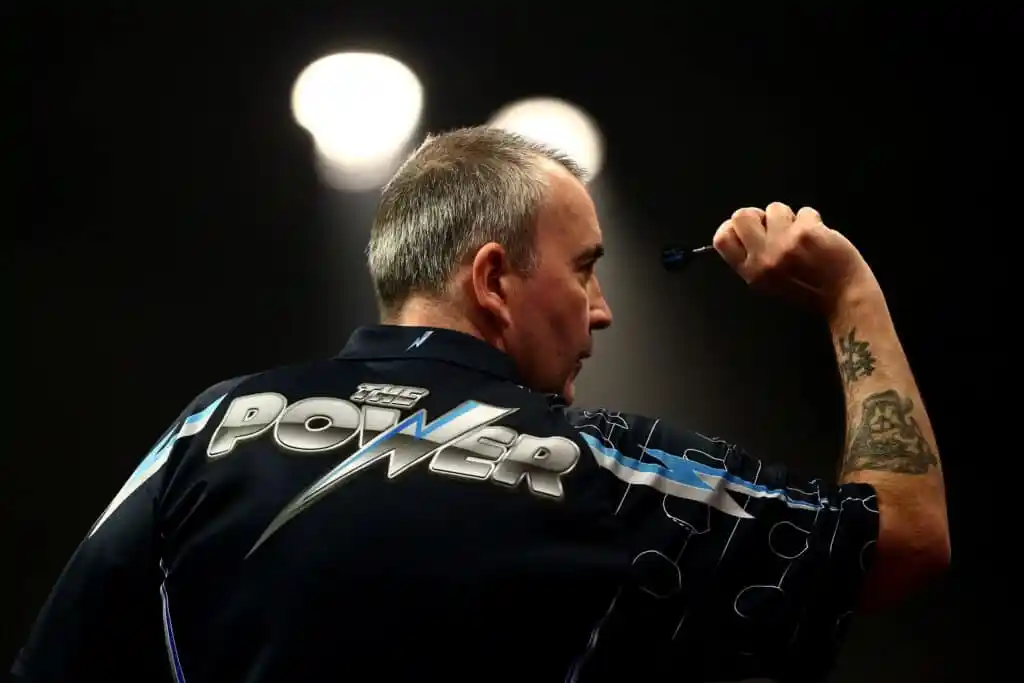Trans woman barred from darts tournament for no good reason says she’s been left in turmoil

A trans dart player has been prevented from playing in an upcoming tournament. (Stock photograph via Getty Images)
A trans darts player has been barred from taking part in an upcoming competition because organisers do not have a trans player policy.
Vee, who has chosen not to disclose her surname, played the sport professionally for years before transitioning and legally changing her gender. She hasn’t played in a competition since.
But her return to darts has been thrown into limbo after Clubs New Zealand Darts Association, which organises national and regional darts competitions, prevented her from playing as does not have guidelines for trans players.
“The fact they’re not letting me play is far more of an issue than if they had let me play,” Vee told Stuff, a New Zealand news website.
“Legally, I’m female, and they cannot stop me from playing. But they will stop me from playing, which is against human rights and discrimination,
Currently, the association does not have a policy on trans dart players at all in its rulebook – instead, its rules simply say men can only compete in men’s singles and women in the women’s singles. It is the only one of New Zealand’s three darts associations that does not have any guidelines for trans sportspeople.
“Essentially, because they don’t have a policy, there’s just a men’s competition and a women’s competition, which I currently qualify to enter. They are making a personal decision,” Vee continued.
“They could decide, under our rules, she’s allowed to play. They could say that. But instead, they’re barring me from playing. They’re breaching human rights instead of allowing inclusion.”
Vee said she told the Clubs New Zealand Darts Association she intended to compete in the West Coast Championships, a regional tournament in Palmerston North, in May. The competition is to be held 25 June.
Yet Clubs New Zealand Darts Association president Duncan Ellis said the board will meet 8 July to discuss a new policy – meaning that Vee will miss out on taking part.
Ellis stressed, however, that Vee has not been “banned” from playing in the association’s tournaments. He mentioned he has a “gay cousin” to show the decision was not “personal”.

Phil Taylor, an English darts champion, stands at 5’8″ – something that Vee says shows the sport isn’t about certain masculine traits. (Jordan Mansfield/Getty Images)
“She can’t play, not until it’s been discussed. We appreciate her position, but I have to look after [Vee’s] interests and also look after our members’ interests,” Ellis said.
“Most certainly, I think she should be allowed to play,” he added. “I have a gay cousin. I’ve not got any problem with her competing. I fully support it.
“But we have to follow our policy and discuss it with the board and our members. I appreciate she’ll miss the West Coast Championships.”
A frustrated Vee said the decision has not only thrown a spanner into her return to darts but is one she simply does not understand.
After all, when it comes to darts, strength, height and stamina – attributes that people who don’t believe trans people should be allowed to compete in sports often focus on – aren’t exactly important, she said.
“Phil Taylor was a 16-time world champion and he was 5’8″,” Vee said, adding: “Being a man doesn’t make you a great darts player.”
The two other darts organisations in New Zealand have policies on trans inclusion that let trans people compete.
The New Zealand Darts Council allows trans women to compete if they have legally changed their gender and prove they have lower testosterone levels. The Professional Darts Corporation, meanwhile, lets all trans people compete without restriction.
Darts is the latest sport to be dragged into a growing culture war around trans people kicking footballs and running across a track. In the UK and the US especially, politicians and pundits alike have said trans women should not compete in women’s sports.
Lawmakers have come up with chilling ways to legislate this. Republicans in Ohio have advanced a bill that would require student-athletes to undergo genital inspections to compete, for example.
While trans athletes, both those who have been allowed to compete and those who have been banned, have found themselves on the recieving end of transphobic trolling as the “debate’ over their rights roils on.
As she waits for the Clubs New Zealand Darts Association to draft its own policy, all Vee can do is wait.
“It’s driving me insane,” she said. “I’m sitting on a razor blade here going, which way do I go, you know.
“Do I just say I won’t play or do I keep fighting for my rights and know that I’m going to be seen as the bad person at the end of it?”

